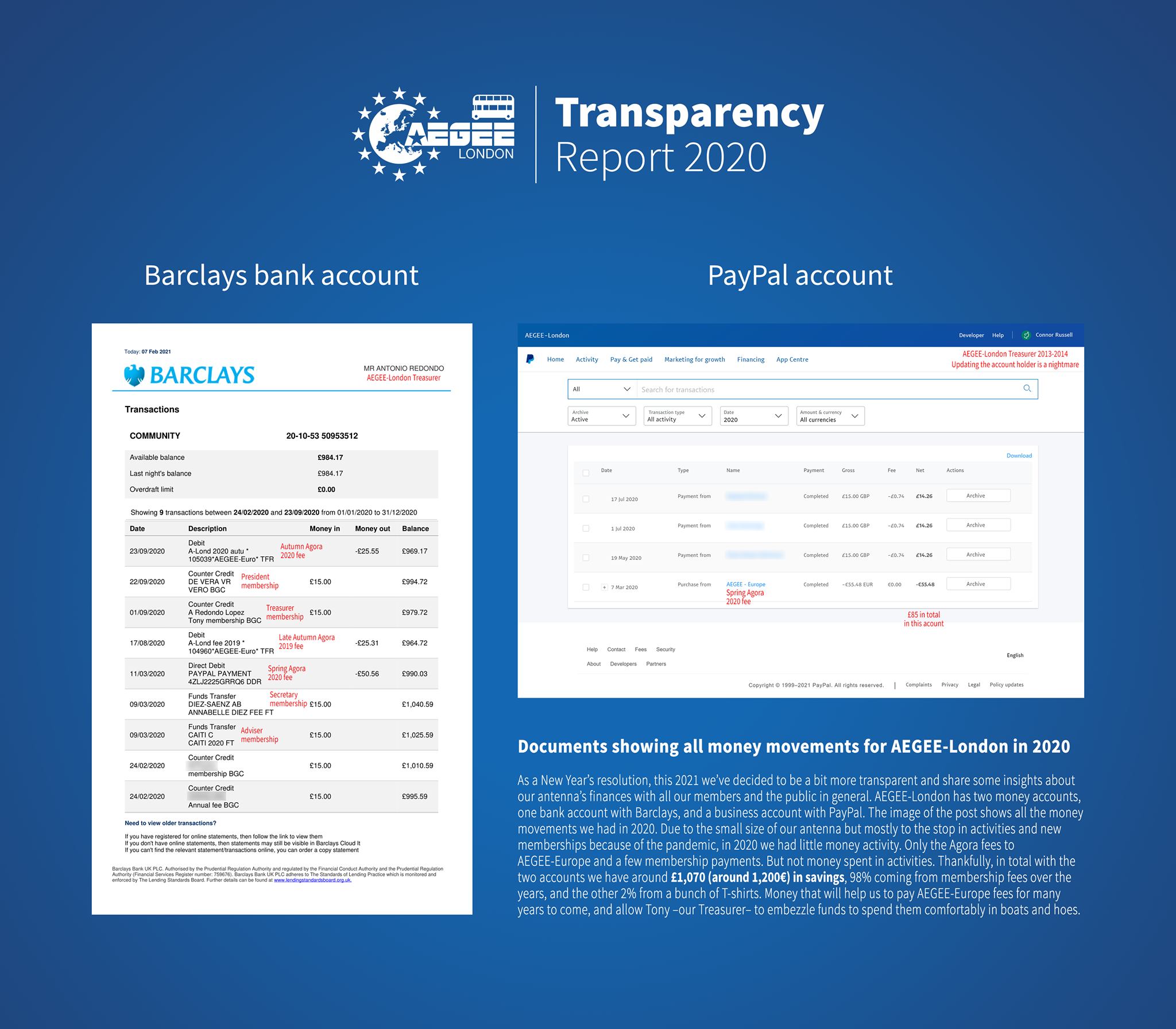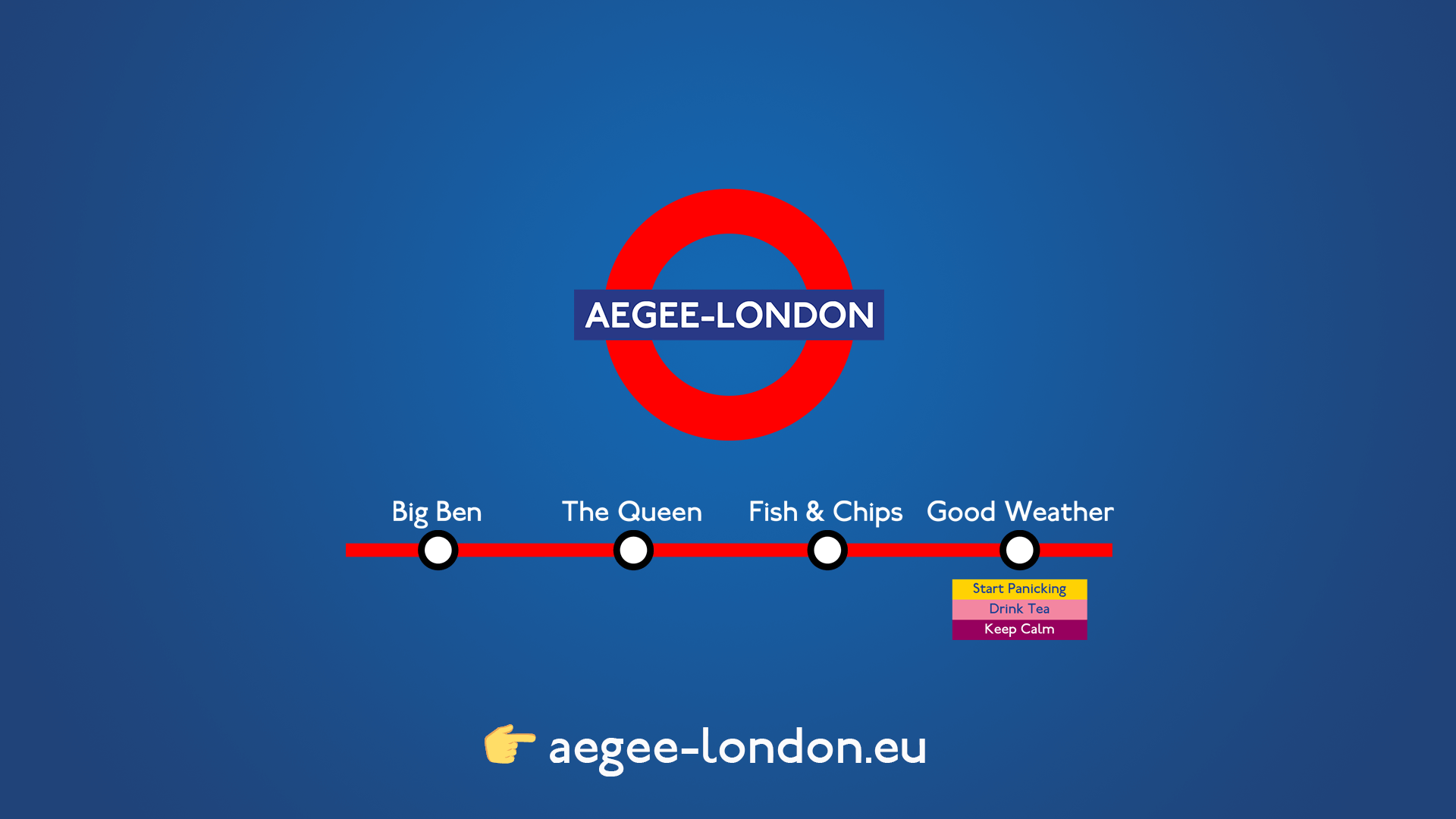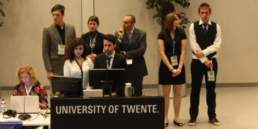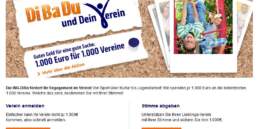AEGEE likes to talk about almost anything – except money. AEGEE-London wants to change it and published a report about its finances on Facebook. “Given how little information about finances is shared in AEGEE I think it was equally appropriate calling it ‘Transparency’ report”, says Tony Redondo, Treasurer of AEGEE-London since April 2016. He also suggests that AEGEE-Europe should take an example from British NGOs and be more transparent with its financial data.
Golden Times: AEGEE-London published a transparency report. What is that?

Tony Redondo: A transparency report is some report or document that shows information about different subjects of an organisation, like how they handle their money or data. This kind of reports have become common in the last decade for many companies, NGOs and governments. Because of more transparency awareness of the public, the democratisation of access to information and the importance that personal and other data has in the internet era, citizens of democratic countries demand more transparency in general.
GT: Is this something which is typical mainly for the UK?
Tony: No, many freedom of information laws around the world have been created in the last 20 years and give the right to citizens to force governments to disclose information in a regulated way. Similarly, many private companies and NGOs have followed suit, and voluntarily they publish transparency reports. For example, Google publishes its own Transparency Report containing information about how many requests has been received from a government to access or remove information from their databases.
GT: Can you tell us more about content and structure of AEGEE-London’s transparency report?
Tony: The transparency report we published in AEGEE-London is actually more of a financial or audit report than a transparency report since it only talks about our internal finances. It is just a screenshot of our statement of our Barclays bank account and a screenshot of our PayPal account, accompanied with explanations about the content of these statements. But given how little information about finances is shared in AEGEE I think it was equally appropriate calling it ‘Transparency’ report. This form of transparency report is appropriate for small antennas with little money movements. For bigger antennas around the network a post with tables and charts on the antenna blog or some PDF would have been a better way to create and share a transparency report.
GT: Is your transparency report similar to a financial report?
Tony: Although related, a transparency report is not the same that a financial report or the annual accounts of a company. Both contain information about the inner workings of an organisation. Usually annual accounts are required by law and they talk about the finances and other information that have to be disclosed by regulations. However transparency reports are usually not required by law, and they are used by organisations as an extra feature to increase trust and public projection by giving some extra information.

GT: What is the legal status of AEGEE-London?
Tony: AEGEE-London is not a NGO or a student society – like for example AEGEE-Sheffield, which is registered as a student society with the Sheffield Students’ Union. Under English law, AEGEE-London is an unincorporated association, and this kind of organisations are not required to publish any kind of financial or transparency report.
GT: Why are you not a registered NGO?
Tony: Registering AEGEE-London as a NGO would be overkilling and actually not the right organisation type for us. But NGOs in the UK have to disclose publicly annual accounts. Ideally we should be a student society. But unfortunately we do not have any roots in London universities. This is the paradox of living in the biggest capital of Europe. It is at the same time the most expensive one, including its universities and student unions. Only students of these universities can use the university venues like the union building or classrooms, usually for free, though the rooms available are highly demanded. AEGEE-London does not have university students among its active members. We are all young professionals. Externals to the university can also book venues, for example at the UCL or LSE. But you will have to pay hundreds of pounds a day for it. Obviously we prefer to spend all this money on other things.
GT: How difficult is it to run or manage AEGEE in a city like London? Do you face scepticism or competition, for example from students unions?
Tony: Yes, there are many other student societies. And managing an antenna becomes more complicated for antennas from big cities, where prices of rents and public transport soar. This is the case for London, Paris or Milan, where the antennas are small and die to raise from the dead yet again every few years. In AEGEE-London, the second return to life for us happened in 2013 and since then we have been able to remain in antenna status and good activity and financial health. Wish us luck to keep this way for long!

GT: I do! But let’s go back to the report first: Are you starting a tradition with it?
Tony: Yes. This year has been the first time we have published this transparency report. But we plan to do it hereafter every year.
GT: Why is it for your antenna important to publish such a report?
Tony: It is important because by doing so the board avoids having secrets for its members and the public in general. We have members, they trust us and pay our annual membership fee – 15 Pounds, around 17 Euro. Hence they are morally entitled to know what we do with their fee. We also want to make this information available to anyone to make clear that we have an honest, transparent and not-for-profit aim in the money we manage.
GT: Not every antenna likes to talk about its finances…
Tony: Being an antenna with many social and fun events does not mean that we should not talk about money. We do not have absolutely anything to hide. And unlike individuals, governments and companies that have legal rights to not disclose all or parts of their finances, AEGEE-Europe is a NGO and I do not think this kind of organisations should have the moral right to hide or minimise this information publicly for most cases. In fact, disclosing NGO financial information is legally compulsory in many European countries, like in the United Kingdom. In the UK anyone can find the financial information of any NGO in the Register of Charities. For example, check the detailed information you can find about Oxfam on the Register. As you can see is pretty detailed yet comprehensive for anyone, not accounting knowledge required. However many NGOs themselves already publish this information in their websites – like Oxfam – in addition to the information available in the Register.
GT: Sounds like a very healthy attitude.
Tony: At AEGEE-London we do not understand why this money topic is a taboo for antennas around the network. Disclosing this information is an accountability for an organisation of our kind at both local and European level. Making public this information should be a much more common practice even when legally may not be required. AEGEE-Europe publishes every year its financial report, budget and balance sheet. But because of the current AEGEE Data Privacy Policy Statement (DPPS) and the three-level protection system these documents are considered internal, thus only members of AEGEE have the right to access these documents. In practice accessing these documents is more complicated even if you are an AEGEE member.
GT: How so?
Tony: They are stored in Google Drive, and the link to their folder is only shared once on Facebook. The link for these files is protected and you not only have to be an AEGEE member but also necessarily accept a Google Workspace account provided by the organisation to access these files even when there is no technical constraint that justifies this practice, apart from the overly restrictive DPPS.
GT: What kind of feedback did you get on your post about your transparency report?
Tony: The post on Facebook got fewer likes than usual compared to other posts of our Facebook page. The topic is boring, so I think we should have enhanced the report with pictures of cats and some memes.
GT: Well, former Audit Commissioner Luca Bisighini was very successful with this strategy…
Tony: We got some feedback from an AEGEE member. But it was not good. This member was baffled with the fact that we published this information in such a public place like Facebook. This member claimed that this information should be only relevant to members, and that this disclosed information “would be harmful for future partners and sponsors […] Publishing something like this will not only affect this board, but potentially also future boards”.
GT: You disagree with it?
Tony: At AEGEE-London we completely disagree with this understanding of how the finances of a student organisation should be handled in such an opaque way. As far as we know we have never seen any antenna sharing this kind of information publicly, not even only with its members. Happy to be proved wrong.
GT: Many people are taught from childhood on not to talk about money. It’s learnt behaviour.
Tony: It is saddening seeing such an obscure attitude towards financial information in AEGEE. We had to celebrate an extraordinary Agora in December 2020 due to issues with the budget. And issues with antenna Treasurers embezzling antenna’s funds have happened in the past, like in 2017 with a big Dutch antenna. Having a more transparent approach with our finances would have helped minimising the chance of these incidents happening. But we have this approach of no financial information can go outside AEGEE boundaries because if not sack man will come and eat our partners. Yet AIESEC, ESN and pretty much any other NGO and private company publish more public financial information than AEGEE and they carry on having partners and business to do.
GT: Are there any special regulations for NGOs like AEGEE that might be different in other European countries?
Tony: I assume every European country has its own laws regarding NGOs. But in practice these differences should have little repercussion on AEGEE at both local and European level. At European level AEGEE-Europe is a Belgian and French NGO. So we have to comply with the charity laws of these countries. AEGEE-Europe publishes internally the financial report and budget. It seems the Belgian and French law regarding charities does not force AEGEE-Europe to disclose this information in a public external way, like it happens in the United Kingdom. On this specialised source about Belgian charity law it is mentioned that NGOs have to send the financial report and budget to the authorities after being approved in the general meeting. But it does not say anything about this information being made public. There are other transparency requirements that entities in the European Union have to follow. For example, all the lobbying organisations on the European Parliament and European Commission have to be registered in the Transparency Register. AEGEE is registered accordingly.
GT: So what do you suggest, what should AEGEE-Europe do?
Tony: The bottom line is that AEGEE-Europe should make available with a simple Internet search the financial reports, budgets and pretty much any other document that are classified as internal by the DPPS, to follow transparency practices that are already followed in many other parts of Europe in both the public and private sectors. Having this lack of transparency because –reportedly– we lose partners and it affects our public image is an untenable justification for a NGO of our kind and spirit.



